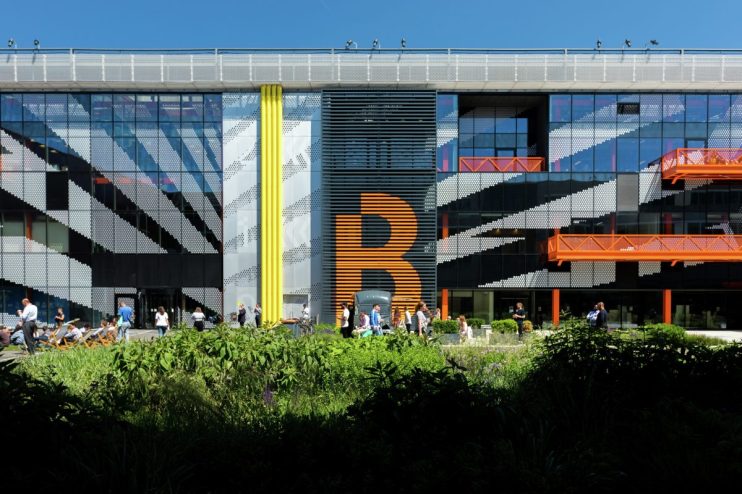What Paris should learn from London’s Olympic media legacy

The 2024 Olympics are over and Parisians peeved at the general logistical chaos inflicted on them by the influx of tourists will be breathing an ‘ooh la la’ of relief.
But, like the short-lived breakdancing event that has been axed for the 2028 Games, the actual sport is just a fleeting moment in the grand scheme of hosting the Olympics.
The true measure of Paris’s success will be determined far more by the legacy it leaves behind.
Consider London, which has managed to turn its own Olympic legacy into a surprising success story. Here East, the home of the former Press and Broadcast Centre of the London 2012 Olympic Park, has transformed its glass-fronted walls into a sprawling tech campus.
What could have easily become a relic of a bygone event now hosts over 30 organisations and 6,500 people, including startups, creatives and universities like UCL and Loughborough.
“Hackney was always scarlett with social deprivation, closely followed by Newham next door,” Gavin Poole, chief executive of Here East told City A.M. “So we said: ‘We need to build capacity in the local economy, bring in high-value jobs, support growth in the local community and provide prosperity.’ And that’s what we’ve done.”
Post-2012 Olympics, Here East’s first tenant was BT Sport, moving in in August 2013 after securing Premier League rights. Today, the site is 84 per cent occupied, despite one tenant, Matches Fashion, filing for administration in March.
Another tenant, global car giant Ford, started with a small 5,000 sq ft office and a team of 30 and has grown on site to over 40,000 sq ft of space including R&D labs, with over 300 people on campus.
Those jobs did not exist before. These are growth jobs, because we realised it is a brilliant location to attract young, digital natives, curious talent
Paris, which has splashed out over €8bn (£6.8bn) on the Olympics, according to Wallethub data, could glean a few lessons from this.
What can Paris learn?
One issue for the 2024 Paris Olympics is whether it can breathe new life into one of the city’s most impoverished corners, Seine-Saint-Denis—a common post-Olympic dilemma for many host cities.
London’s 2012 Games elicited scepticism over how beneficial it would be to locals who watched a massive steel fence go up, separating their community from the Olympic Park. “It just reinforced the idea that they were not going to get anything out of it at all,” Poole explained. “It took organisations like ours from the private sector, the London Legacy Development Corporation, local boroughs from the public sector, and many others to come together and rebuild that trust.”
When London won the bid in 2005, it promised a model for social inclusion and the regeneration of East London. While not everyone agrees that it has fully achieved this—questions remain about the promised affordable housing—the economic value generated by Here East is undeniable.
According to Oxford Economics, Here East has outperformed economic estimations, contributing £700m in gross value added (GVA) to the UK and local East London economy in 2021. Its success can be attributed to its ability to attract major players like Ford and Sports Interactive, as well as providing a home for startups and scaling businesses. The site has also become a hub for government-led innovation programs, particularly in cybersecurity, with initiatives like Cyber Runway supporting over 300 cyber startups annually.

But the real work starts after the Games. “It’s not about the sport,” Poole said. “The point is you’ve got billions of pounds worth of investment…This is something that’s going to leave its legacy on that part of Paris for many, many years to come. Now, [Here East] is 12 years in, and it only feels like we’ve really got going, even though we’ve done a lot.” The London 2012 Olympics cost just shy of £9bn and did manage to break even.
There is a clear appetite for continued investment in East London, with Here East ready to expand further. Just a few weeks ago, it submitted a bid for the adjacent car park, although details are still under wraps.
If Paris is to turn its Olympic legacy into a lasting boon for the city long after the athletes have departed, it should take a page out of London’s playbook.